10 Tips To Stay Calm In SSB Personal Interviews
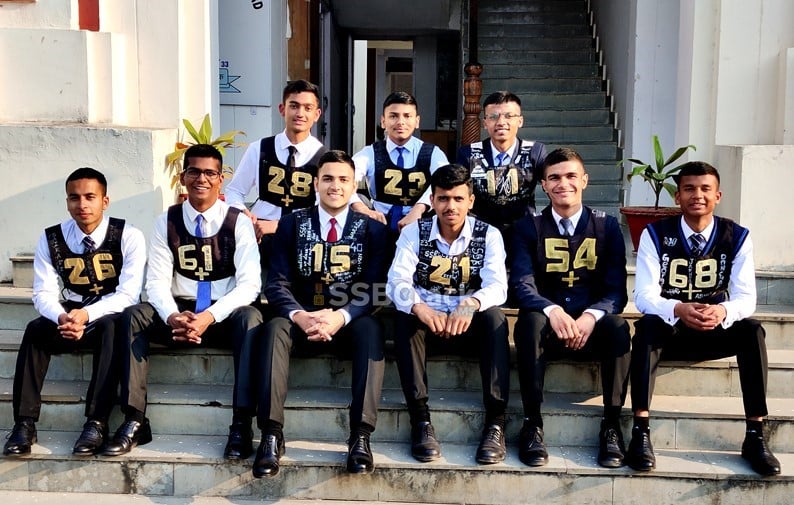
The Services Selection Board (SSB) personal interviews are crucial assessments for aspiring candidates in defence services, ultimately determining who will don the uniform and serve the nation. Given the esteemed nature of this process, it's common for candidates to experience anxiety and nervousness as they prepare for what can be a rigorous and demanding interview experience.
However, mastering the art of calmness is not just about managing anxiety; it involves being well-prepared, communicating effectively, and presenting oneself authentically. This article delves into ten key tips that can help candidates maintain their composure and enhance their performance during SSB personal interviews.
SSB Interview Books Power Pack: 4 Must Read Books for Defence Aspirants
Rs. 1,760.00
Sale price
Rs. 1,399.00
Let's Crack SSB Interview Book [Paperback]
Rs. 390.00
Sale price
Rs. 360.00
Breaking The Code of SSB Psychological Tests Book - SSB Interview (TAT/WAT/SRT/SD)
Rs. 390.00
Sale price
Rs. 360.00
OIR Test & PPDT Book - SSB Interview Screening Test - Stage 1 Testing
Rs. 490.00
Sale price
Rs. 375.00
Understanding the SSB Interview Process
Significance of the SSB Interview
The SSB interview is a multi-stage assessment conducted to evaluate the potential of candidates aspiring to join the Armed Forces. It comprises various tests, including psychological assessments, group discussions, and interviews. The focus is not solely on academic knowledge; rather, the board seeks to assess candidates' personality traits, leadership skills, and overall suitability for a career in defence.
1. Prepare Thoroughly
Familiarization with the Process and Question Types
Preparation is the foundation of confidence. Understanding the SSB interview process and the types of questions that candidates may face is crucial. Candidates commonly encounter personal questions, situational tests, and queries related to defence knowledge. Therefore, engaging in extensive research about the SSB procedure and familiarizing oneself with typical question formats can significantly reduce anxiety and boost preparedness.
-
Types of Questions:
- Personal Questions: These often revolve around your background, interests, and motivations for joining the Armed Forces.
- Situational Questions: Candidates may be presented with hypothetical scenarios that test their analytical and decision-making skills.
- Defence-Related Questions: A solid grasp of national and international defence-related topics is invaluable.
Utilizing resources like SSBCrack and SSBCrackExams can equip candidates with comprehensive materials that outline these question types while also offering insights into the test structure.
2. Know Your PIQ Form Inside Out
Importance of Consistency and Authenticity
The Personal Information Questionnaire (PIQ) form is a critical document that outlines your personal details, achievements, hobbies, and educational background. Familiarity with your PIQ is essential, as interviewers will reference this document during the interview.
- Consistency: Ensure that all information shared during interviews aligns with what’s present in your PIQ form. This consistency fosters trust and credibility with the assessors.
- Authenticity: Personal stories derived from your experiences, interests, and accomplishments can create an engaging narrative during your interview, giving assessors a glimpse into your genuine character.
SSB Interview Study Material 2026 [ Pack of 17 eBooks ]
Rs. 1,313.00
Sale price
Rs. 499.00
Thematic Apperception Test (TAT) Part 1 eBook [100+ Stories]
Rs. 150.00
Sale price
Rs. 139.00
SSB Lecturette Topics Part-1 eBook [100 Topics]
Rs. 149.00
Sale price
Rs. 125.00
OIR Test eBook with 20 Practice Sets - [1000+ Questions Included]
Rs. 250.00
Sale price
Rs. 199.00
3. Practice Mock Interviews
Enhancing Fluency and Confidence
Participating in mock interviews is an invaluable practice. This method imitates the actual interview environment, allowing candidates to experience potential pressure while helping to polish their responses.
- Seek Feedback: After each mock interview session, solicit constructive feedback from peers or mentors. Identifying strengths and weaknesses will assist in focusing preparation efforts where they are needed most.
Mock interviews not only enhance fluency but also build self-confidence, effectively reducing anxiety when the actual interview arrives.
4. Stay Updated on Current Affairs
Knowledge as Confidence Booster
Being well-informed about current affairs, both national and international, ensures that candidates can engage confidently during discussions and question-answer sessions related to contemporary issues.
- Relevance: Knowledge of current events is often a focal point of SSB interviews. Candidates can expect questions probing their views and opinions on matters ranging from politics to international relations.
- Resource Utilization: Regularly follow reliable news sources and consider subscribing to defence-related publications to stay abreast of events that could be pertinent to your discussions.
5. Develop Effective Communication Skills
Clarity and Confidence in Expression
Effective communication is paramount during SSB interviews. Candidates must practice articulating their thoughts clearly and confidently, taking into account both verbal and non-verbal cues.
-
Skills Development:
- Verbal Communication: Practice clarity in speech and ensure your tone is confident and calm.
- Non-Verbal Communication: Maintain eye contact, exhibit positive body language, and show enthusiasm to create a favorable impression.
Utilizing role-playing exercises or recording practice sessions can help in identifying areas for improvement in communication styles.
Indian Military Academy IMA Coffee Mug
Rs. 699.00
Sale price
Rs. 499.00
NDA Service Before Self Coffee Mug
Rs. 699.00
Sale price
Rs. 499.00
Officers Training Academy OTA Chennai Coffee Mug
Rs. 699.00
Sale price
Rs. 499.00
Indian Naval Academy INA Ezhimala Coffee Mug
Rs. 699.00
Sale price
Rs. 499.00
6. Maintain a Calm Demeanor
Techniques for Managing Nervousness
Feeling nervous before an interview is a natural response. However, maintaining a calm demeanor is key to navigating the interview with confidence.
-
Relaxation Techniques:
- Deep Breathing: Performing breathing exercises can lower anxiety levels before and during the interview.
- Meditation: Incorporate mindfulness practices to cultivate a sense of calm and focus.
- Physical Activity: Engage in light exercise or stretching to relieve tension and promote mental clarity.
Consistent practice of these techniques can significantly help manage stress during the interview.
7. Be Honest and Authentic
The Value of Integrity
Sincerity is highly valued in SSB interviews. Candidates should strive for honesty in their responses rather than attempting to provide answers they think the board wants to hear.
- Detecting Insincerity: Interviewers are trained to identify inconsistencies in candidate responses. Thus, providing authentic accounts of experiences fosters credibility.
- Self-Presentation: Share personal stories and insights that define who you are, as this can elevate the interaction from a mere Q&A session to a meaningful conversation.
8. Use the STAR Method
Structured Responses to Behavioral Questions
When addressing behavioral questions, the STAR method provides candidates with a structured approach to articulating experiences concisely and effectively.
-
Components of the STAR Method:
- Situation: Briefly outline the context within which the situation occurred.
- Task: Explain the specific responsibilities or challenges faced.
- Action: Discuss the steps taken to address the task.
- Result: Conclude with the outcomes of your actions.
This method ensures clarity and helps to maintain the interviewer's attention while effectively communicating your capabilities.
9. Focus on Your Strengths and Weaknesses
Self-Awareness and Growth Mindset
Being forthcoming about personal strengths and weaknesses demonstrates a mature level of self-awareness. It is critical to frame weaknesses as opportunities for growth.
- Highlight Strengths: Clearly articulate your key strengths, backed up with examples.
- Acknowledge Weaknesses: Instead of concealing weaknesses, acknowledge them, and discuss the steps you’re taking to improve. This openness reflects a growth mindset valued in leadership roles.
10. Dress and Groom Appropriately
Importance of First Impressions
Your appearance plays a significant role in setting the tone for the interview. Adhering to the prescribed dress codes reflects discipline and respect for the institution.
- Professional Attire: Ensure that your clothing aligns with formal standards appropriate for a defence interview setting.
- Grooming: Personal grooming should not be overlooked, as attention to detail impacts your overall presentation.
Additional Tips for Success
While the ten tips above form the core strategies for staying calm during SSB interviews, several additional practices can enhance your overall preparation:
Regular Physical Exercise
Staying physically active not only boosts overall health but also reduces stress levels. Incorporating regular workouts can lead to improved mental clarity and mood.
Self-Awareness and Reflection
Be mindful of your personal journey, experiences, and learnings. Reflecting on past achievements and challenges can provide rich narratives for discussions during interviews.
Positive Body Language
Beyond inherent verbal skills, projecting confidence through body language is critical. Subtle cues such as hand gestures and posture contribute significantly to how candidates are perceived.
SSB Interview Books Power Pack: 4 Must Read Books for Defence Aspirants
Rs. 1,760.00
Sale price
Rs. 1,399.00
Let's Crack SSB Interview Book [Paperback]
Rs. 390.00
Sale price
Rs. 360.00
Breaking The Code of SSB Psychological Tests Book - SSB Interview (TAT/WAT/SRT/SD)
Rs. 390.00
Sale price
Rs. 360.00
OIR Test & PPDT Book - SSB Interview Screening Test - Stage 1 Testing
Rs. 490.00
Sale price
Rs. 375.00
Conclusion: Cultivating Calmness for Success
The SSB personal interview represents a pivotal moment in a candidate’s journey toward a career in the Armed Forces. As the stakes are high, it is natural to feel pressure. However, by employing the ten tips explored in this article, candidates can prepare thoroughly, communicate effectively, and project authenticity in their interactions.
As candidates prepare for the potential challenges of the interview process, embracing a mindset of growth and establishing tailored strategies will pave the way for success. Utilize resources, engage in consistent practice, and most importantly, remain true to yourself. Preparedness coupled with calmness not only enhances performance but also leaves a lasting positive impression on the interviewers. Embrace this opportunity with confidence and clarity, as the journey to serve your nation commences with these first crucial conversations.
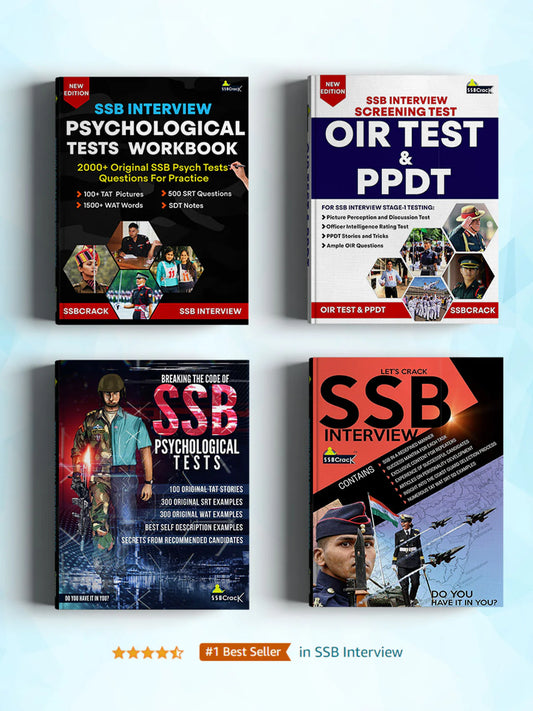
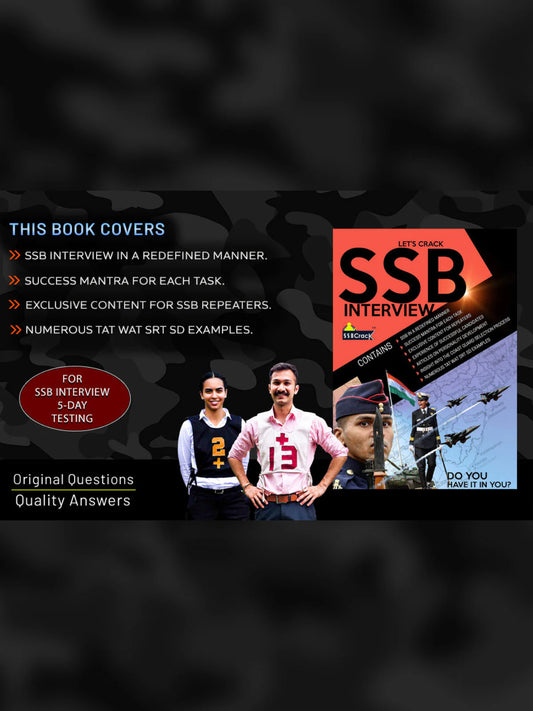
![Let's Crack SSB Interview Book [Paperback]](http://shop.ssbcrack.com/cdn/shop/files/ssb-books.webp?v=1736351621&width=533)
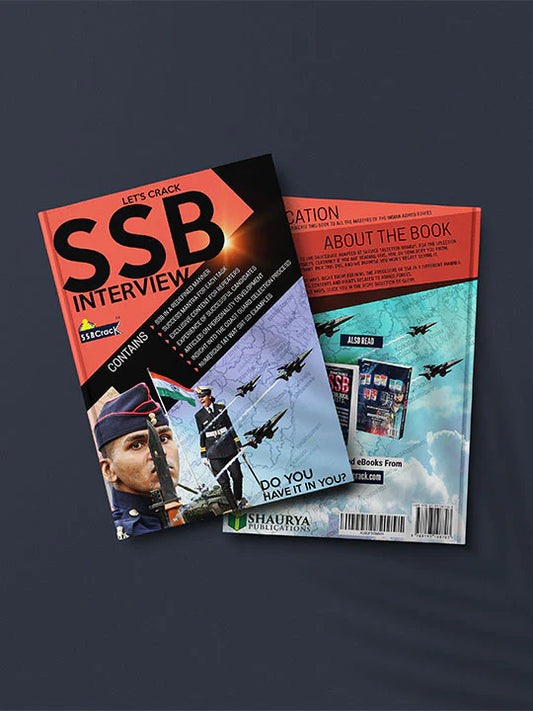
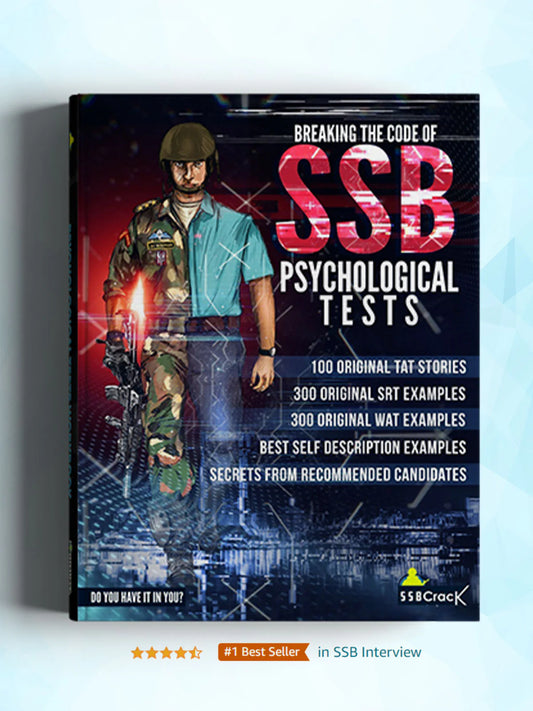
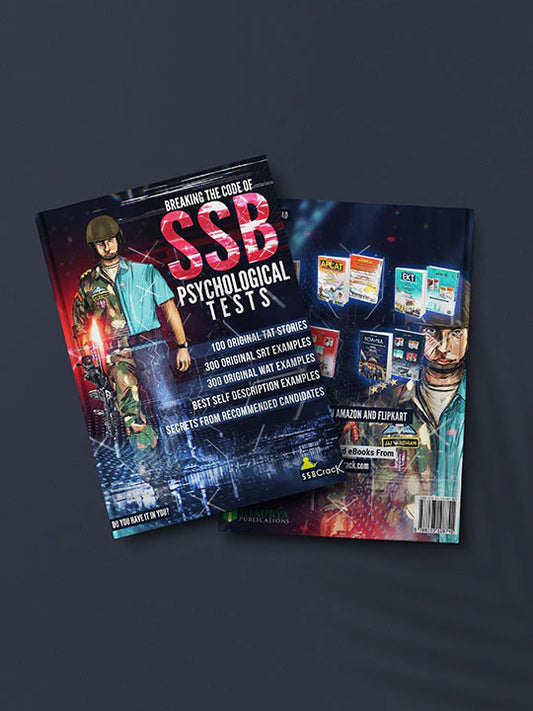
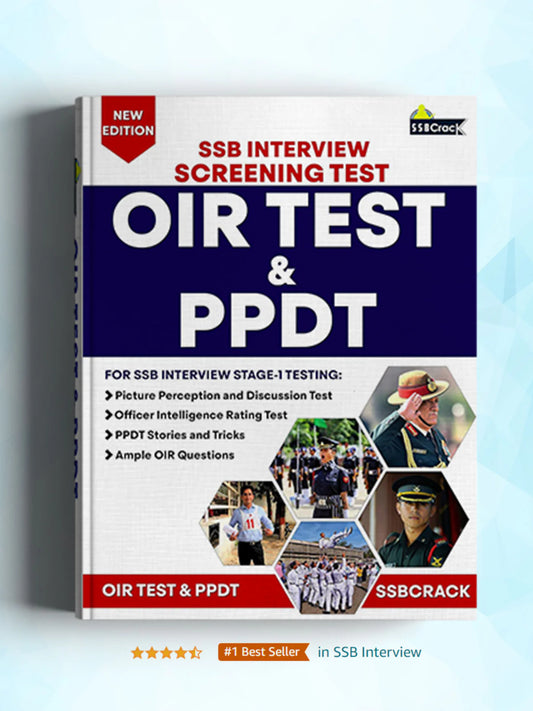
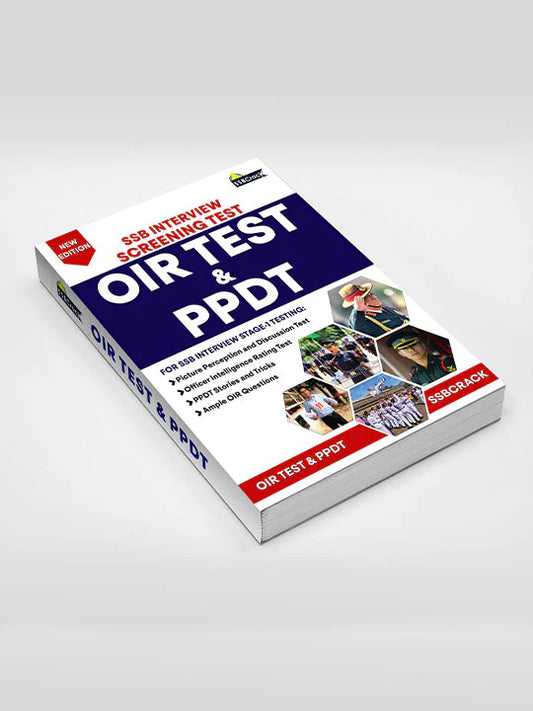
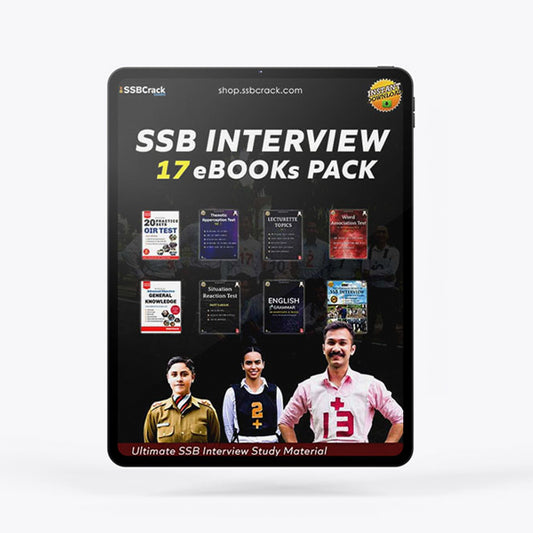
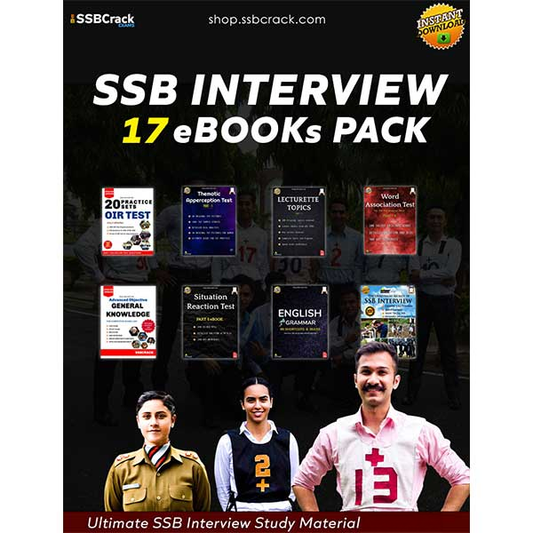
![Thematic Apperception Test (TAT) Part 1 eBook [100+ Stories]](http://shop.ssbcrack.com/cdn/shop/files/TAT-ebook-part-1-ssbcrack_051ae49c-43ea-4eb4-95c7-0fa0bfa2a639.jpg?v=1735540406&width=533)
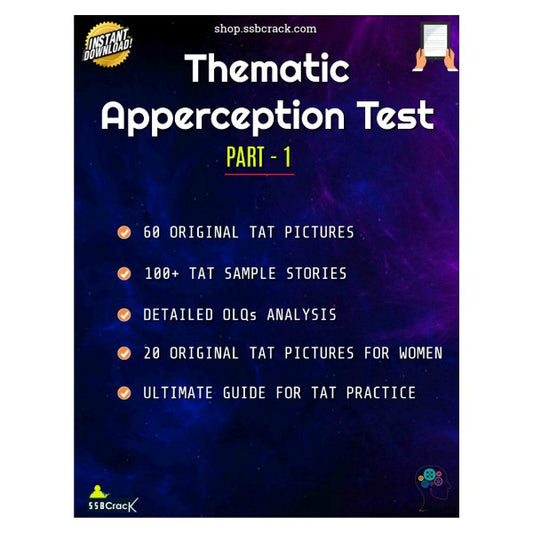
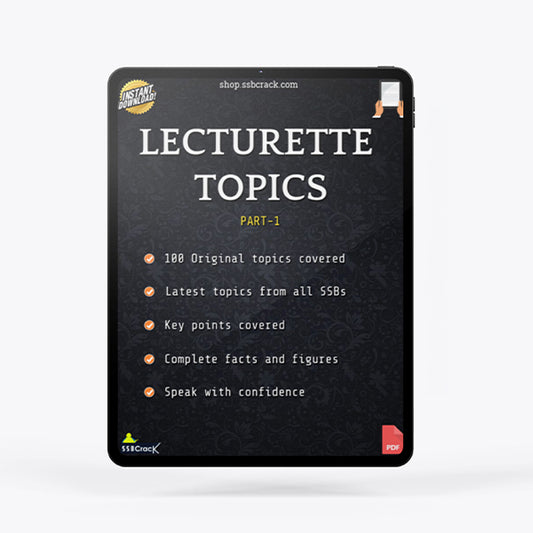
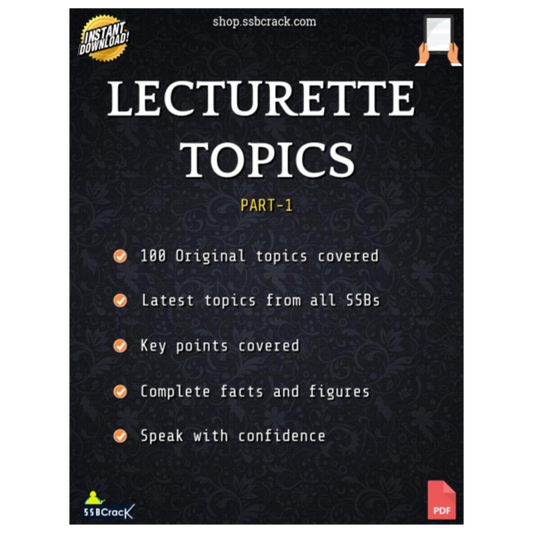
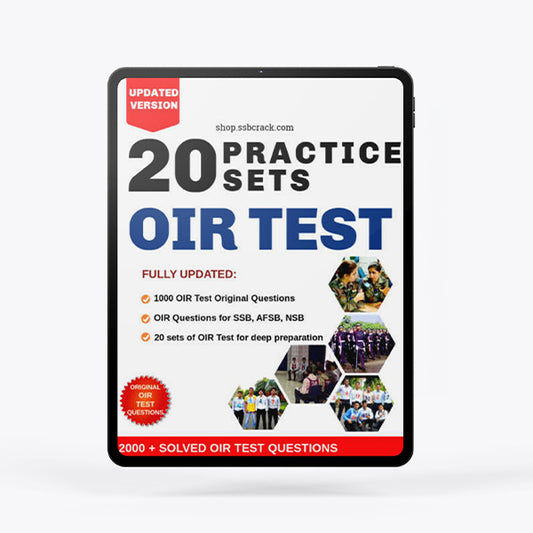
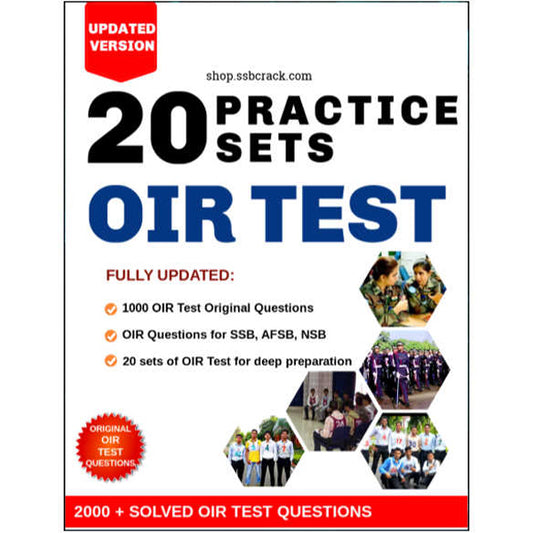






















1 comment
Awesome